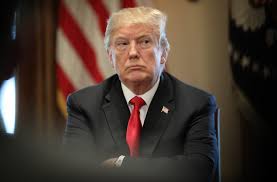Trump tries to defuse immigrant crisis, but policy hit by confusion

WASHINGTON/MCALLEN, Texas (Reuters) – President Donald Trump ordered federal agencies on Thursday to begin reuniting immigrant families recently separated at the U.S.-Mexico border, but his efforts to roll back a policy that drew global condemnation were beset by confusion.
Despite Trump’s order, it remained unclear how and when more than 2,300 children who have been separated from their parents in the past few weeks would be reunited with them, and where the families would be held while the parents face criminal charges.
It was also not clear if the government would keep prosecuting cases against people caught crossing the border illegally.
While prosecutors said they were not dismissing any cases, some hearings on Thursday did not proceed as scheduled. In McAllen, Texas, 17 immigrants were told by their public defenders that their cases were not proceeding for now.
Separately, the U.S. military was asked by the government to get ready to house up to 20,000 unaccompanied immigrant children at military bases, Pentagon spokesman Lieutenant Colonel Jamie Davis said.
Video footage of children who had been separated from parents sitting in cages and an audiotape of wailing children had sparked worldwide anger over Trump’s “zero tolerance” immigration policies.
The fierce criticism forced Trump to backtrack and sign an executive order on Wednesday to keep families together in detention during immigration proceedings.
First lady Melania Trump on Thursday visited children displaced by the immigration crisis .
But the olive green jacket she wore as she boarded the plane for Texas – daubed with the words “I REALLY DON’T CARE, DO U?” on the back – appeared to undercut the message of compassion.
The White House responded to criticism by saying there was no hidden message. “It’s a jacket,” said Stephanie Grisham, Melania Trump’s spokeswoman. “After today’s important visit to Texas, I hope the media isn’t going to choose to focus on her wardrobe.”
LEGAL BATTLES
In a filing in U.S. District Court for the Central District of California, the Justice Department asked a judge to modify a 1997 settlement that has been interpreted as setting a 20-day limit on detaining children who entered the country illegally, regardless of whether they entered with a parent.
It also sought an exemption from state licensing requirements for federal facilities that house the children.
The Justice Department said the recent surge in the number of illegal border crossings by families had created a “destabilising migratory crisis” that put those families at risk and threatened public safety.
“Under current law and legal rulings,” the Justice Department said, “it is not possible for the U.S. government to detain families together during the pendency of their immigration proceedings. It cannot be done.”
During a Cabinet meeting at the White House, Trump said he did not want to separate children from their parents and had directed the departments of Justice, Homeland Security and Health and Human Services “to work together to keep illegal immigrant families together during the immigration process and to reunite these previously separated groups.”
The executive order was an unusual retreat for Trump, who made cracking down on illegal immigration a key part of his presidential campaign.
It moves parents with children to the front of the line for immigration proceedings, but the Trump administration said it did not end the 10-week-old zero tolerance policy that calls for prosecution of immigrants crossing the border illegally under the country’s criminal entry statute.
The U.S. Border Patrol will continue to refer for prosecution adults who are caught crossing the border illegally, a spokesman for the Customs and Border Protection said on Thursday.
“Family unity will be maintained for families apprehended crossing the border illegally, and they will be transferred together to U.S. Immigration and Customs Enforcement,” the spokesman said in a statement.
The administration also has sought a permanent legislative fix on the issue, but the U.S. House of Representatives on Thursday rejected a bill favoured by conservatives that would have halted the practice of splitting up families and addressed a range of other immigration issues.
The House rejected the conservative bill on a 193-231 vote, with 41 Republicans joining the opposition. It also postponed until Friday a vote on a compromise bill in order to try to drum up more support.
Both House bills, backed by Trump but opposed by Democrats and immigration advocacy groups, would fund the wall Trump has proposed along the U.S. border with Mexico and reduce legal migration, in part by denying visas for some relatives of U.S. residents and citizens living abroad.
Reporting by Richard Cowan and Steve Holland; Additional reporting by Tim Ahmann, Amanda Becker, James Oliphant and Yeganeh Torbati in Washington and Mitchell Ferman in McAllen, Texas; Writing by John Whitesides; Editing by Bill Trott and Peter Cooney
